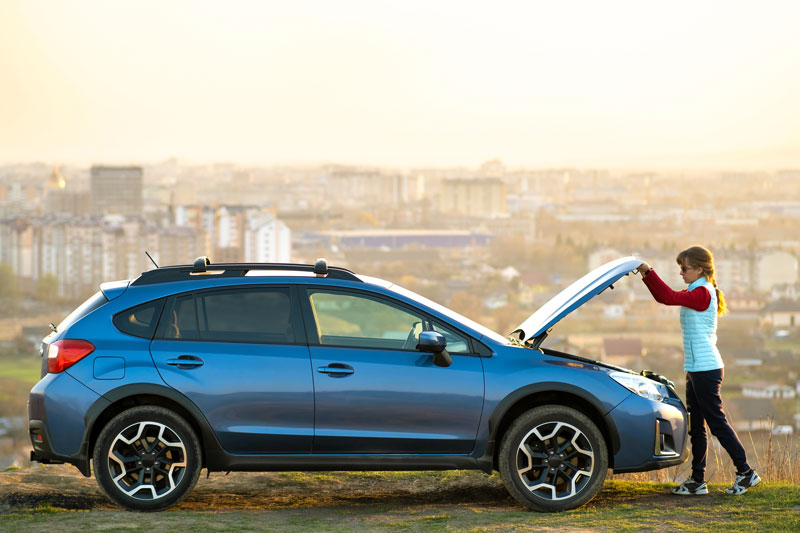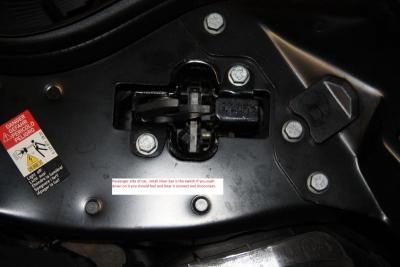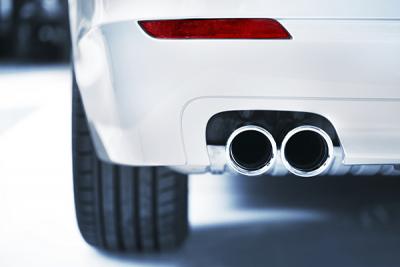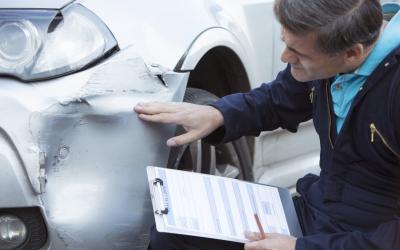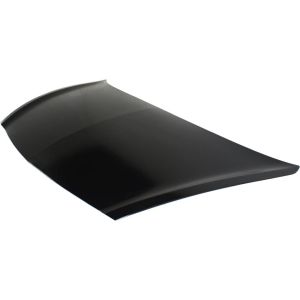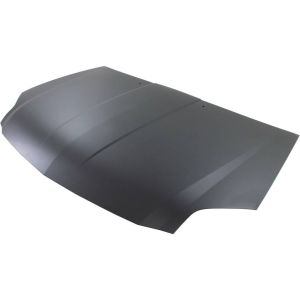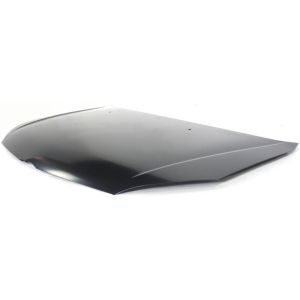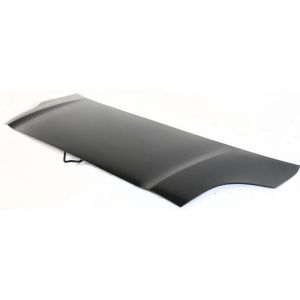Just as you're pondering the necessity of a car hood, you're not alone in this curiosity. Yes, you can technically drive a car without a hood, but it's important to understand the possible legal and safety implications. Depending on your location, local laws might prohibit such practice.
Furthermore, your car's hood serves as a protective barrier for the engine, shielding it from debris, weather, and potential theft. Without this safeguard, you're risking damage and performance issues.
So, before you decide to go hoodless, let's delve deeper into the consequences and considerations of driving a car without a hood.
Key Takeaways:
- Some states, such as Maryland and Oregon, have laws prohibiting driving without a hood.
- Other states, like Alaska, Hawaii, North Dakota, and West Virginia, have regulations that require modifications to vehicles without hoods.
- Some states do not have specific laws against driving without a hood, but it is still considered unsafe and can result in traffic tickets or legal issues.
- Regardless of the legality, it is advisable to drive with a hood to protect performance parts, prevent damage, and ensure the engine is not exposed to the elements.
What Is a Car Hood?
A car hood, your vehicle's protective cover, shields your engine and other key components from the elements and potential hazards. You might wonder - what is a car hood exactly? Well, it's more than just a piece of metal. It's an essential part of your vehicle's overall structure and design.
The car hood, also known as a bonnet, mainly serves as a barrier against damage. It's designed to protect the engine, battery, and other critical components from debris, harsh weather, and minor collisions. Without your car's hood, these components are exposed and vulnerable.
Moreover, your car hood offers access to the engine for maintenance and repair. Typically, it's a hinged panel that you can easily lift. So, if you need to check your oil or tinker with your engine, the car hood makes this possible.
Also, your car's hood contributes to its aerodynamics. The shape and design of the hood can affect how smoothly your car moves through the air. In essence, your car's hood is not just a cover, but a vital component that ensures your vehicle runs safely and efficiently.
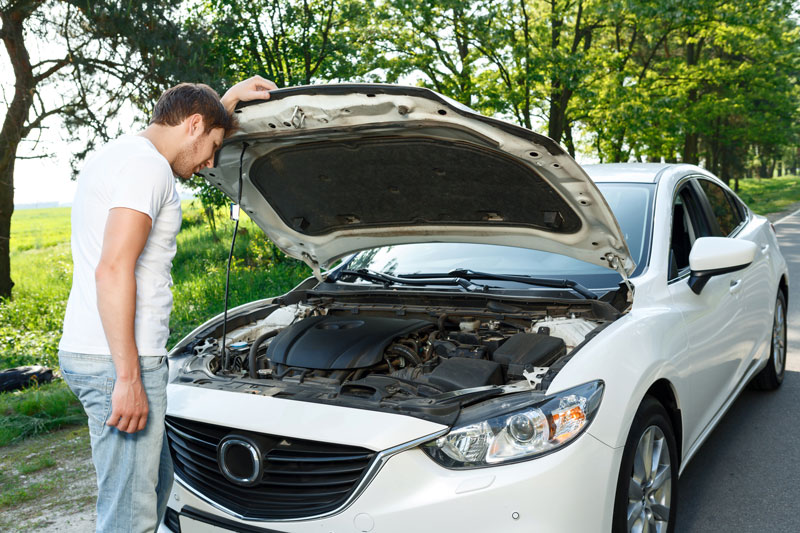
Alt tag: a man who has opened his front bonnet
Why Do Cars Need a Hood?
Given the numerous roles that it plays, it's clear why you really need one. The hood of your car isn't just there for aesthetic purposes. As we said, It serves as a shield for the car motor, protecting it from external elements such as debris and the weather.
They also serve for the following reasons:
- To prevent dust, rain, and even small animals from getting into the engine compartment, which could cause damage.
- To keep the engine insulated and maintain the right temperature for it to function optimally.
- To dampen the noise from your engine, giving you a quieter ride.
If your hood gets damaged or old, you'll need a new one to continue enjoying these benefits. Driving around without a hood exposes your engine to risks that can lead to expensive repairs or replacements.
In essence, the hood is like a helmet for your engine. So, why do cars need a hood? Well, it's all about protection and performance. Remember that your car's engine is one of its most important and costly parts. Protecting it with a hood is a smart move. Drive safe, drive smart!
Type of Damages That Can Happen to Your Vehicle Hood
Your car's hood can suffer a variety of damages. Rusting and corrosion can degrade its protective abilities, while falling objects can cause dents and cracks that may impact its structural integrity. Collisions can severely damage your hood, affecting not only its appearance but also its functionality.
Rusting and Corrosion
In the event of a damaged hood, you're likely to encounter rusting and corrosion, especially if the protective paint or coating is compromised. This deterioration can severely affect your car's value and performance.
The good news - you've got some options:
- You can treat and repaint the hood to halt the rusting and corrosion process.
- You might choose to change your car hood entirely.
- Or, you could consider installing aftermarket hoods, known for their durability and resistance to rust.
These solutions not only prevent further damage but can also enhance your car's overall look. However, neglecting the issue can escalate the problem and lead to more significant damage over time.
Next, we'll delve into another potential issue - denting from falling objects.
Denting From Falling Objects
When it comes to your vehicle's hood, one common type of damage you need to watch out for is denting from falling objects. As car owners, you're not exempt from the occasional hailstorm, loose branch, or even errant baseball.
These falling objects can quickly turn a quality hood into a pockmarked eyesore. Remember, it's not just about aesthetics. Dents can compromise the integrity of your hood, leading to further damage down the road.
It's always wise to assess and repair any denting promptly to maintain your car's value and function. So, stay vigilant and protect your investment.
Next, we'll delve into another common type of hood damage: collisions.
Collisions
Despite your best efforts, collisions with other vehicles or stationary objects can leave your car's hood crumpled or severely dented. Imagine a head-on collision - the force can warp your hood, affecting visibility and causing an unsafe condition.
Here are some details to keep in mind:
- A side swipe might scrape or dent your hood, reducing your car's resale value.
- Rear-end collisions can jam the hood, making it difficult to open for engine access.
- Even minor fender-benders can result in hood damage, like chipped paint or minor dents.
If law enforcement officers deem your car unsafe due to hood damage, they may require you to repair it. Always report any collision to your local police department, and remember, driving with a damaged hood can be hazardous. Be safe out there!
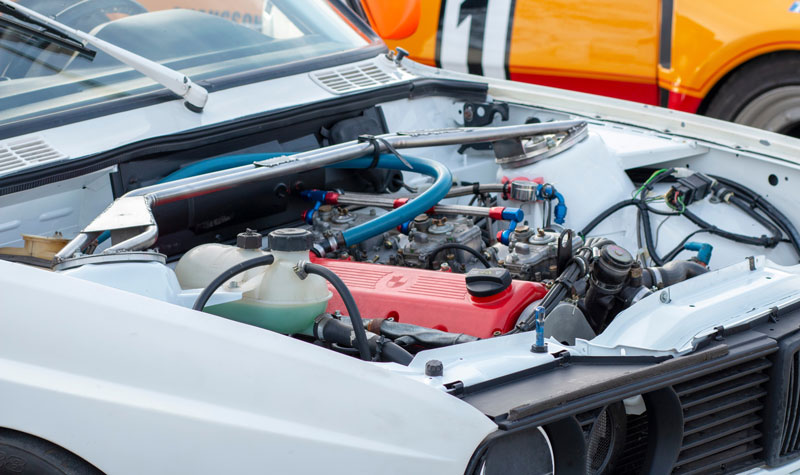
Can I Drive Without a Hood?
You might be wondering, "Can I drive without a hood?" Let's explore this further. We'll look at which states prohibit it, which ones allow it, and what you should keep in mind regarding your vehicle's safety and local laws.
Which States Prohibit Driving Without a Hood?
So, where is it actually illegal to drive without a hood on your car? The answer isn't as straightforward as you might think.
As far as we know:
- In Oregon, driving without it is considered illegal.
- Maryland also has laws making it illegal.
However, states like West Virginia and North Dakota don't explicitly outlaw it. Instead, they require engines to be adjusted to prevent excessive smoke or fumes. It's a gray area, so your best move is to avoid driving hoodless in these states.
Which States Allow Driving a Car Without a Hood?
While some states permit driving without a hood, it's essential to know your local laws before deciding to hit the road hoodless. Surprisingly, there aren't many specific laws on whether you can drive a car without a hood.
It's generally seen as a gray area, with the legality often depending on your vehicle's performance and local regulations. For instance, states like Maryland and Oregon have strict rules against hoodless driving. On the other hand, in places like California, there's no explicit law forbidding it.
However, remember that driving without a hood could affect your vehicle's performance and may draw unnecessary attention from law enforcement. Now that you understand the legalities, let's delve into how to take care of your car's body elements.
How to take care of your car's body elements?
Taking proper care of your car's body elements, including the hood, is essential for maintaining its functionality and aesthetics.
A car without a hood can attract unwanted attention and potentially affect engine performance negatively. It's not just about how it looks - it's about preserving the internal parts that keep your vehicle running smoothly.
But, can you drive a car without a hood in the rain? It's not advisable. The engine and other components could be exposed to water, leading to potential damage.
Here are some tips to keep your car's body elements, particularly the hood, in good shape:
- Regular Cleaning: Keep your car clean. It prevents dirt buildup, which can lead to rust, and it also allows you to notice any damage early.
- Prompt Repairs: If you notice a dent or scratch, get it fixed immediately. Small issues can turn into big problems if they're not addressed.
- Protective Measures: Use car covers or park in a garage to protect your car from harsh weather conditions.
Conclusion
So, can you drive a car without a hood? Technically, yes, but it's not worth the risk. Imagine cruising down the highway, wind in your hair, only to have a rock chip your engine. The cost of repair could be astronomical.
Plus, there's the legal hassle. It's much safer and cost-effective to maintain and protect your car's hood. After all, your car's more than just a vehicle, it's an investment. So treat it with the care it deserves.
FAQs (Frequently Asked Questions)
What happens if you don't have a hood on your car?
- The hood serves to protect the vehicle's engine. Therefore, if you don't have a hood, it is quite possible that potential problems could occur, such as - dirt, water, and other problems.
Can you ride around with no hood?
- It is theoretically possible to drive without a front cover. However, you expose yourself to potential risks - getting in trouble with local laws or causing permanent damage to the car's engine.
Can you drive a car with a messed up hood?
- Although it is possible, we advise against it. A damaged hood structure can affect the safety of both the vehicle and you. At the earliest opportunity, visit a workshop to repair the damage.
